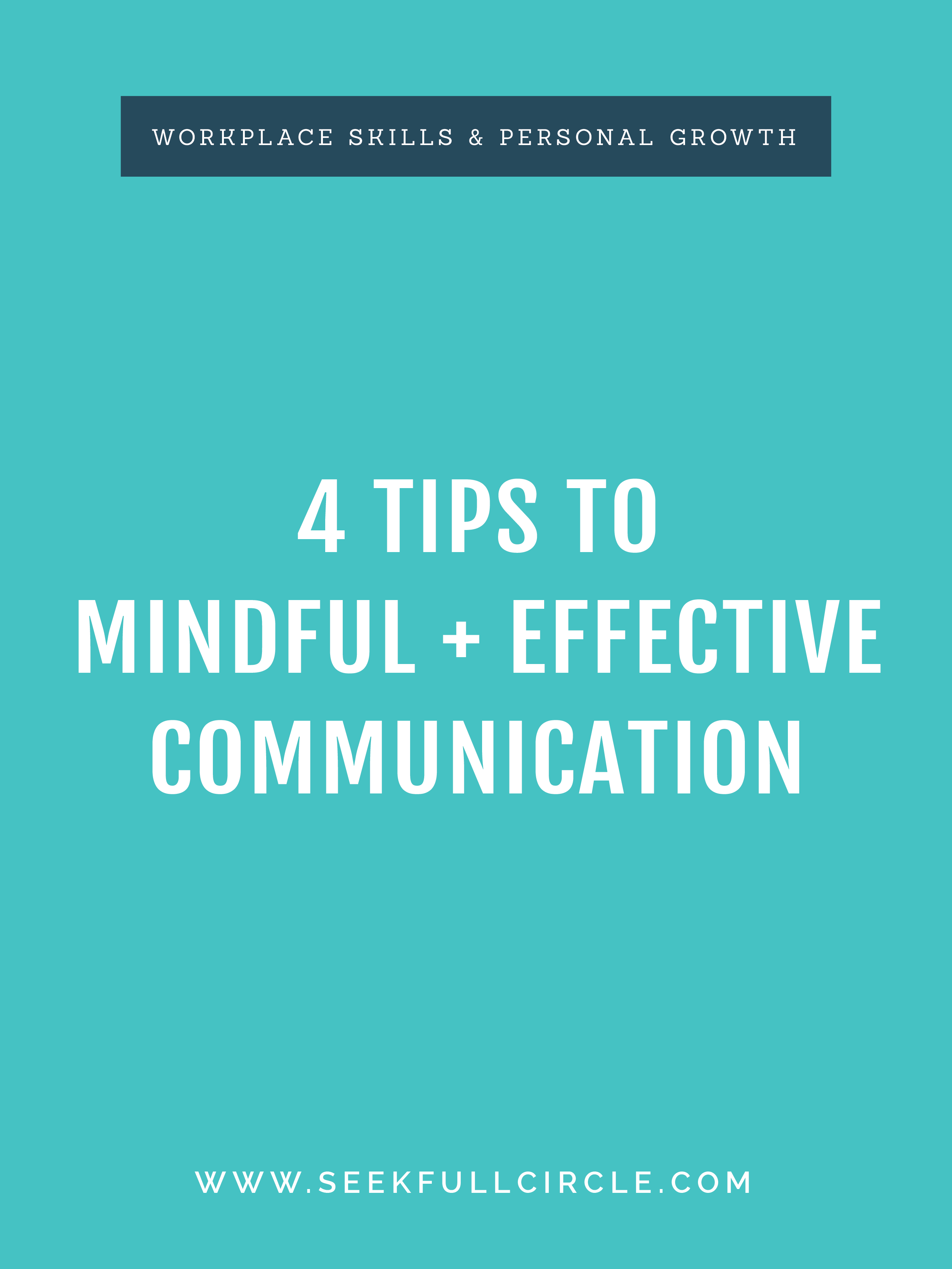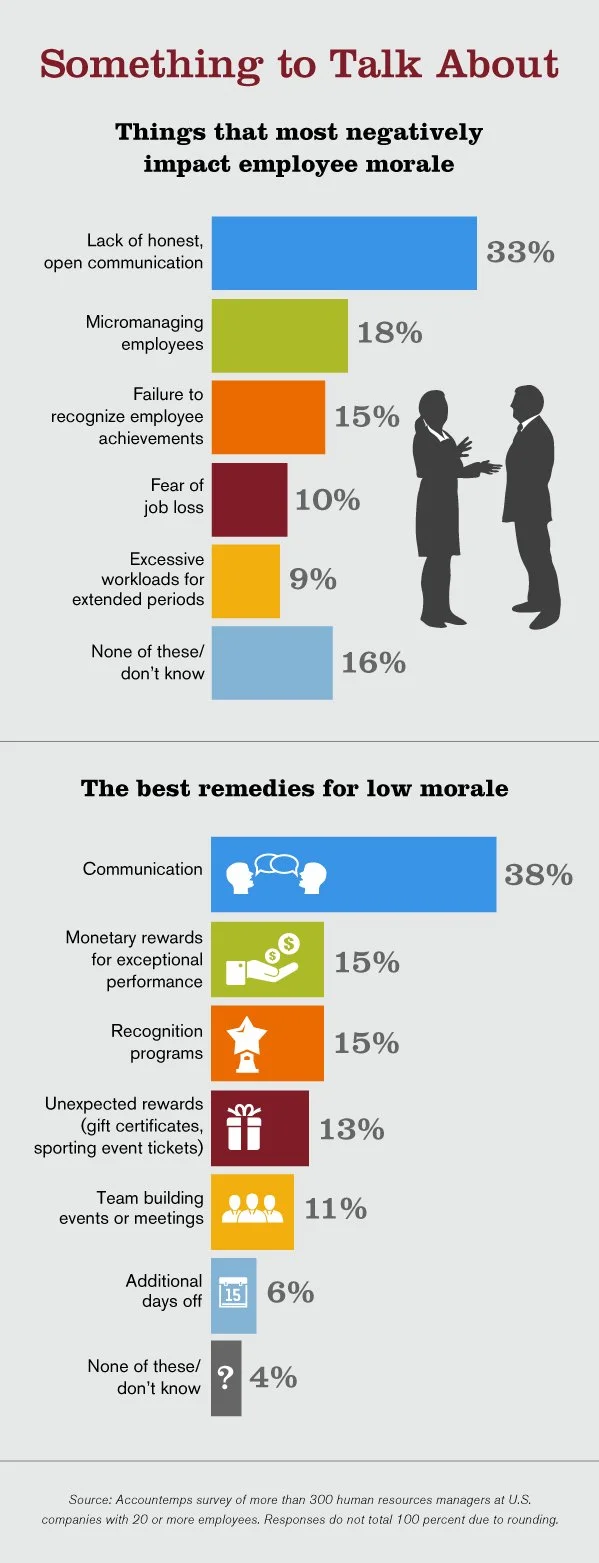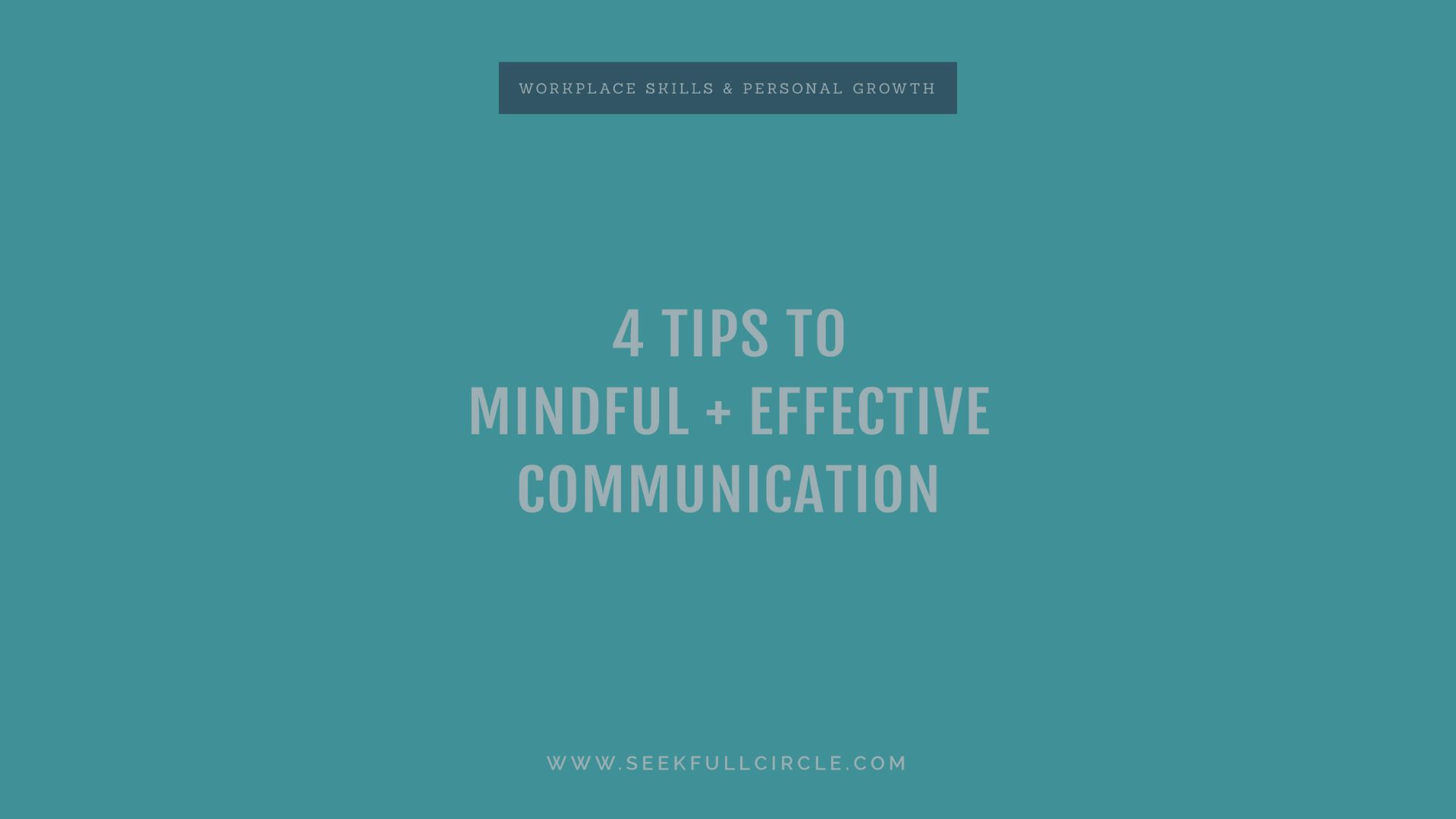
A business coach once shared the following observation: Every company—no matter the industry, size or geographic location—faces the same “issues”; they just manifest differently. In the nearly 20 years I’ve spent as a consultant, I can say without hesitation that coach was right. And one of the biggest “issues” my clients face is a lack of communication—internal and external.
The result?
Life at work is much harder than it needs to be. According to an Accountemps survey, 33 percent of human resources (HR) managers interviewed said a breakdown in communication is at the heart of most morale problems; almost 18 percent of survey respondents pointed to micromanagement as the biggest factor. Communication was also cited as the most effective way to counter low employee morale.

Problematic Communication Trends
In a similar spirit to the survey, I’ve noticed the following trends among businesses I serve:
-
Humans in business use the excuse of “being too busy” to make communications a priority with internal + external audiences.
-
Communicating key business strategies, goals + news to employees is often an afterthought rather than a priority.
-
Communication efforts within company walls often lack empathy, compassion + emotional intelligence.
-
Communication efforts outside company walls frequently lack a game plan that embraces consistent messaging + branding.
-
Like many other soft skills, communication tends to be undervalued because it’s difficult to measure.
Compounded over time, the very thing we don’t make time for leads to severe workplace disengagement. According to Officevibe, 70 percent of U.S. workers aren’t engaged and only 40 percent of employees know their company’s goals.
Busy: The Poor Communication Culprit
Are you as curious as I am? Do you wonder how something with such significant impact continues to occur?
The biggest culprit sabotaging communication efforts, despite an increase in the number of avenues we have to connect with others, is something that’s become a badge of honor: being busy.
When humans are busy, we don’t make the time to communicate. It’s not a matter of having the time; it’s about making the time. Consider this adage: If it is important to you, you will find a way. If not, you’ll find an excuse.
Example 1: Co-worker Dialogue
Stop and reflect for a moment about the last time you passed someone in an office hallway. Often, these “communication” exchanges sound something like this as each person hurriedly makes their way from point A to point B:
Co-worker A: “Good morning!”
Co-worker B: “Hi!”
Co-worker A: “How are you?
Co-worker B: “Good! Busy! You?”
Co-worker A: “Busy!”
Can you relate? While we’ve all been there, myself included. But, is that the type of communication that’s vulnerable, builds trust, fosters connectivity + nurtures relationships?
Example 2: Co-worker Dialogue
How different would an exchange feel that was more along the lines of:
Co-worker A: “Good morning!”
Co-worker B: “Hi! How was your speaking engagement last week?”
Co-worker A: “How thoughtful of you to remember. It was inspiring. The people at John Deere were willing to have an interactive conversation with me rather than passively sit and listen. I’m very grateful for the opportunity and I made some great connections. Thank you for asking. How about you? How was your trip over the long weekend?”
Co-worker B: “My trip was relaxing and refreshing. I enjoyed some quiet time on the beach with a book about how busyness decreases productivity.”
Co-worker A: “That sounds like an interesting book. I should probably get to my meeting. See you tomorrow!”
Co-worker B: “Sounds good!”
The Power of Mindful + Effective Communication
What’s the value of the second dialogue example compared with the first? From a communications standpoint:
-
Each person was vulnerable enough to share something about themselves. According to Brene’ Brown, “Vulnerability is the birthplace of innovation, trust and engagement.”
-
The investment of time nurtures relationships. Relationships are at the center of who we are. They make working easier, improve productivity and cultivate trust and mutual respect – essential elements of a balanced work environment.
-
Learning opportunities abound when we connect. By the end of that communication exchange, each person knew information about the other that can be helpful moving forward. For example, the co-worker B is aware that co-worker A likes speaking engagements where attendees are interactive rather than those who are passive and sit idle. Co-worker B may know of an organization looking for a speaker and could recommend co-worker A. In turn, co-worker A learned that co-worker B enjoys quiet time on a beach. Co-worker A might know others that enjoy that and offer to introduce them to co-worker B which helps him/her grow his/her network.
Each of us is capable of impacting others in one of two ways: positively or negatively.
How to communicate more mindfully + effectively
Set the intention to positively impact each person you come into contact with by making a commitment to communicate more mindfully + effectively. Start with one person daily. You will gradually build new neuropathways in your brain that empower you to make this your default behavior rather than having to work so diligently at it.
Here are four ways to communicate more mindfully + effectively:
-
Breathe: Your breath is your body’s steering wheel. Just holding your breath for a second or two, or breathing in short, shallow breaths, communicates a message of anxiety to the brain that causes disintegration of the brain and a reduced flow of electrical energy to the rest of the body.
-
Be present: Exist only in that moment. When thoughts unrelated to the particular conversation enter your mind: a) express gratitude for the thought b) gently ask it to leave. Concentrate solely on what the person is saying. Don’t give energy to thinking about how you will respond.
-
Slow down: There are multiple benefits to slowing down. Once you make the choice to do less, you’ll discover you have: more focus, better relationships, clearer communications, more perspective and notice more around you.
-
Be curious: Humans love to talk about themselves. One way you can be memorable is by asking questions thereby inviting others to talk about what’s important to them. Plus, you learn a lot from listening to others. Refer to my previous post about active listening.
What tips do you have for communicating more mindfully + effectively?
